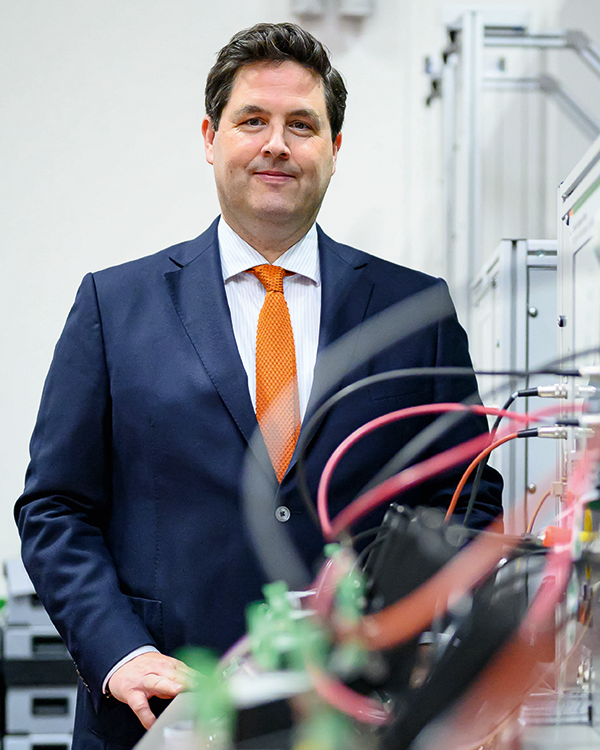Text Bertram Kawlath ––– Photography
Since time immemorial, people have traded with each other – and across all borders. As the volume of trade in goods and services has grown, so too have levels of prosperity around the globe. Without the global exchange of knowledge, technological progress would have been limited – or even impossible in many cases.
This makes the position we find ourselves in today all the more sobering. More countries globally are now ruled by autocrats than by democratically elected governments. More and more trade barriers are being erected. The COVID pandemic and the wars in Ukraine and the Middle East have made us painfully aware of how quickly global supply chains can break down. And the Oval Office is again occupied by a man who is particularly fond of the word “tariffs” and who regards trade as a “deal” in which there must be winners – the USA – and losers, including the EU.
So, is the idea of global free trade on the way out? No, fortunately not. Global trade in goods and services is actually continuing to grow. It increased by just under 3 percent last year, so is growing just as strongly as global gross domestic product. Growth of 3 percent is also projected for 2025. According to the Chief Economist of the World Trade Organization (WTO), approximately 75 percent of this global trade operates under WTO rules. Despite the increasingly protectionist rhetoric we hear from many heads of state, there still largely appears to be a pragmatic understanding that countries need international trade flows to keep their own economies going.
However, two factors have changed fundamentally. Firstly, all attempts to draw up multilateral agreements have been more or less abandoned. Even the EU-Mercosur agreement is still up in the air, despite an agreement in principle having been reached years ago. Many governments are turning to bilateral agreements and seeking to ensure that these benefit their own country as much as possible. Although agreements of this kind are better than no trade agreements at all, they increase both complexity and the associated costs.
Secondly, more and more countries are trying to put up protectionist walls. They are subsidising their own industries and introducing local content requirements that force foreign investors to establish a presence in the country. While there is hope that some large markets, such as India, will now open up more and become more integrated into global trade, the overall effect is that life is being made increasingly difficult for exporters. This is a less-than-encouraging development for German industrial SMEs in particular.
Ultimately, in the coming years, it is largely the relations between the USA and China that will determine global trade. According to WTO figures, the bilateral trade flows between these countries only represent around 3 percent of global trade, but the indirect effects will be many times greater if they both impose tariffs and export bans on each other and put their partners under pressure. Global trade under these conditions would result in constant uncertainty and decimate growth.
Global trade will not grind to a halt – but it could become even less “free”. It is therefore all the more important that the EU pulls together and strengthens the single market, instead of increasingly picking over every detail of it. To remain a strong player on the international trading scene, the EU must ensure it stands as a solid economic bloc. If, instead, the EU reverts to the age of national egotism, we will increasingly find ourselves ground down by the attempts of the major economic players to exert their power and the belligerent ambitions of various autocrats. The EU faces an enormous challenge – to stand up to all protectionists with all its might.
Without the momentum of free trade, we will only be able to maintain and bolster our prosperity if we innovate faster, take responsibility and simplify processes. It is not only politicians who need to take action – we all do.
